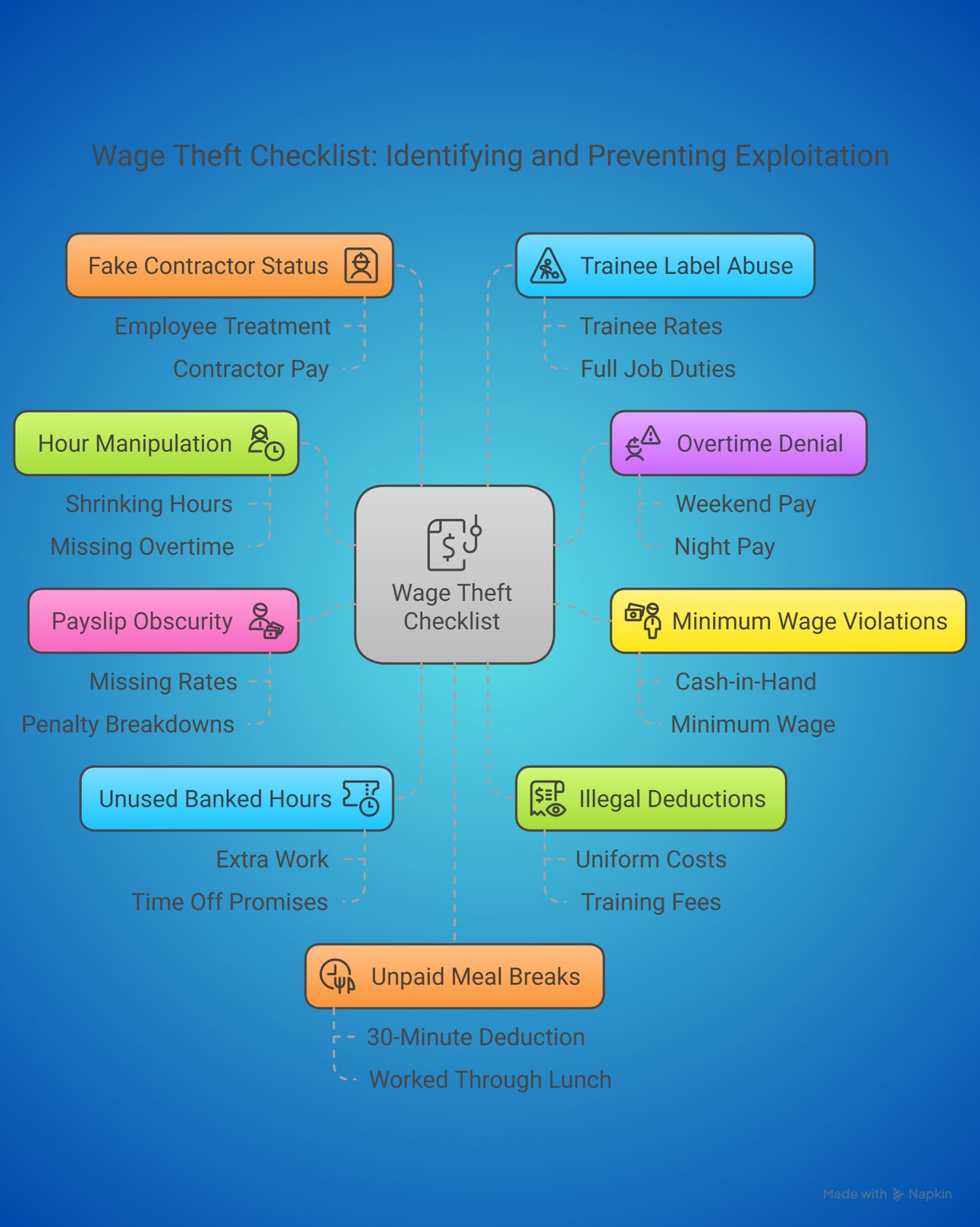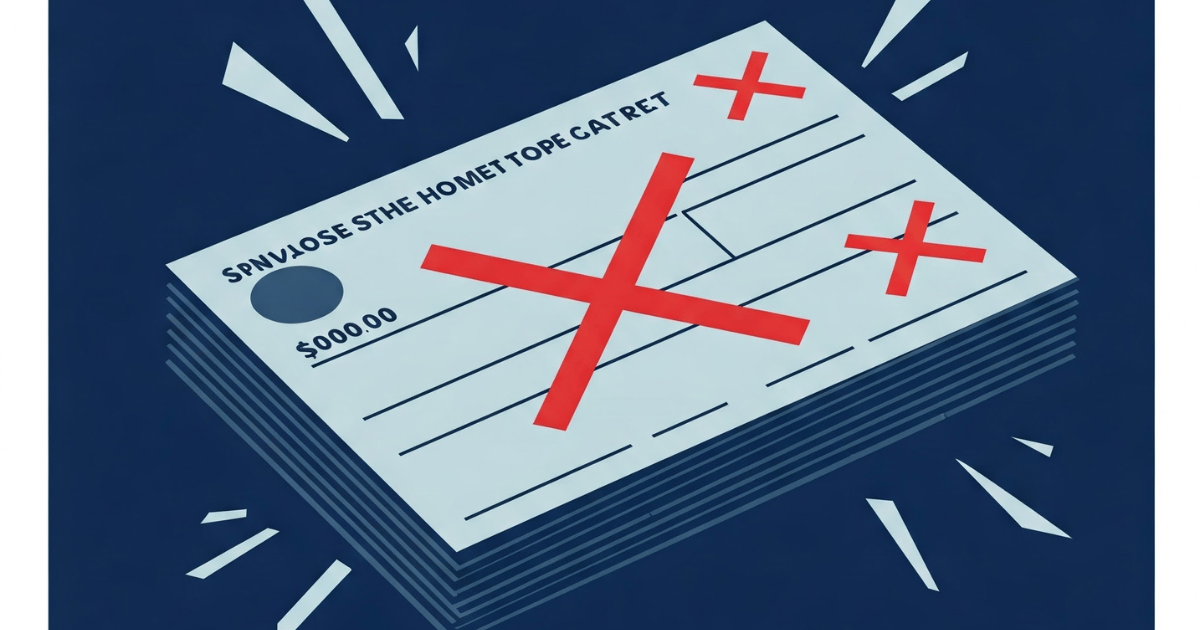
🚨 Did You Know? 1 in 4 Aussie Workers Experience Wage Theft
Imagine filling up your car with petrol, but the pump secretly skips every 5th litre—you’re paying for fuel you never get. That’s exactly what wage theft does: it steals your time and labor without you realizing.
For employees, contractors, and small business owners, spotting wage theft early could mean thousands in recovered wages—or avoiding crippling fines. This guide reveals 15 sneaky tactics employers use and exactly how to fight back.
🔍 Wage Theft Explained: The "Shrinkflation" of Your Paycheck
Think of wage theft like shrinkflation in supermarkets:
Your chips bag looks the same... but holds 15% less
Your paycheck seems correct... but missing hours, penalties, or super
The difference? While shrinkflation is legal, wage theft isn’t. Here’s how to spot it:
📜 The 15-Point Wage Theft Checklist
💰 Payment Red Flags
"Mysteriously shrinking hours"
Your recorded hours never match what you worked
Example: Clocking out at 5:30 PM but payslip shows 5:00 PM
The "disappearing overtime" trick
No extra pay for weekends/nights despite your award requiring it
Cash-in-hand below minimum wage
"We'll pay 20cash—notax!"(But minimum wage is 20 cash—no tax!"(But minimum wage is 23.23/hr)
📝 Documentation Warning Signs
Payslips that look like hieroglyphics
Missing hourly rates, penalty breakdowns, or super details
"Banked hours" that never get used
"Work extra now, take time off later" (Spoiler: Later never comes)
Illegal deductions
Money taken for uniforms, training, or "register shortages"
👥 Employment Status Scams
The "fake contractor" con
Treated like an employee but paid as a contractor (no super/sick leave)
"Trainee" labels for skilled work
Paid trainee rates despite doing full job duties
⏰ Time Theft Tactics
Automatic unpaid "meal breaks"
Deducting 30 minutes when you worked through lunch
Pre-shift work demands
"Just set up before clocking in—it only takes 10 minutes!" (Every day = 43 unpaid hours/year)
💼 Workplace Culture Red Flags
Retaliation threats
"If you complain about pay, don’t expect more shifts"
"We’re family" excuses
"Times are tough—pitch in without overtime pay"
🧾 Final Paycheck Games
Withheld termination pay
"You left suddenly—we’ll pay you when we can"
"Lost" leave entitlements
Annual/sick leave disappears when you quit
Ghosted super payments
Super fund hasn’t received payments in months
⚖️ Your 3-Step Action Plan
1. Play Detective
Compare payslips to the Fair Work Pay Calculator
Secretly document shifts (photos of rosters, screenshots of clock-in apps)
2. The Paper Trail Test
Send this email:
"Hi [Manager], my payslip shows [X hours] on [date], but I worked [Y hours]. Could you clarify?"
3. Nuclear Option
Report anonymously to the Fair Work Ombudsman—they’ve recovered $1 billion for workers since 2020.
💡 Why This Matters
Employees: You could be owed thousands in back pay
Employers: Accidentally underpaying? Self-report now to avoid jail time (yes, really—14 years in QLD)
📌 Bookmark this list—your future self might thank you.
Share this guide to help others spot wage theft!
Disclaimer: This content is general advice. For legal guidance, consult the Fair Work Ombudsman or an employment lawyer.

